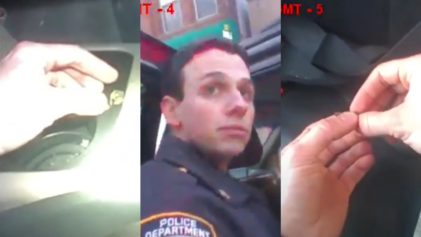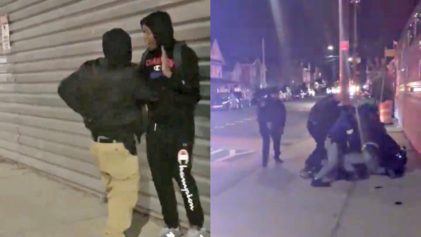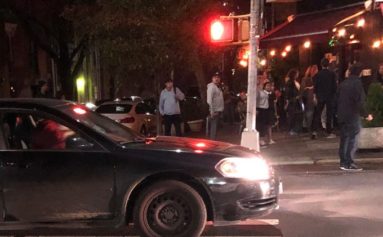In the eyes of New York City Police Commissioner Ray Kelly, the department’s stop-and-frisk policy was a way to instill fear in young black and Latino males, former NYPD captain and New York state Sen. Eric Adams told the court yesterday.
Adams said the police commissioner made the comments in 2010, during an Albany meeting with then-governor David Patterson.
In a statement, the police commissioner “categorically and totally” denied making the remarks attributed to him by Adams.
“It’s interesting that apparently only Mr Adams heard this statement though other people were present. And, it just defies logic … it’s ludicrous,” Kelly said in his statement.
But the U.S. District Court judge hearing the stop-and-frisk case, Shira Scheindlin, wouldn’t let the city’s lawyer, Heidi Grossman, read Kelly’s statement in open court, stating that the commissioner would not be able to provide testimony through “backdoor” means.
“If he’d like to come here, he’s welcome in this courtroom,” Scheindlin said. “If he’s not going to be here, we’re not going to have his statement.”
In the class-action lawsuit in federal court, plaintiffs are trying to convince Scheindlin to rule that the city policy is unconstitutional, claiming the NYPD has used it to stop millions of black and Latino men over the past decade, without a legally defensible reason.
Adams represents a Brooklyn district that has been heavily affected by stop-and-frisk, a policy that has resulted in five million almost exclusively black and Latino males being stopped by police. In 2011, Adams’ district had the second highest number of stops in the entire city and also ranked near the top on crime rates.
“They feel trapped,” Adams said outside of court, about the young people in his district. He told reporters about a meeting he had in his office approximately 18 months ago with seven high school football players.
“Two of them began to cry,” Adams said, adding that the boys told him about “police touching their privates.”
“Cops don’t want to do this,” he said. “Cops are so frustrated they are wearing wires to roll call.”
Adams said he is also frustrated that he doesn’t seem able to effectively convey the seriousness of the conditions in his district to residents of New York’s more affluent neighborhoods. “It pains me,” he said. “New Yorkers don’t really know how bad it is for young people.”
Last month, after emotional testimony from young black males who had been affected by New York’s stop-and-frisk policy, the federal court heard from police officers who produced secret recordings to show how they are pressured by supervisors to stop black and Latino males to meet quotas — or risk punishment and retaliation.
Two officers from the Bronx, Adhyl Polanco, an eight-year NYPD veteran, and Officer Pedro Serrano, testified that they were pressured to make stops and to focus on black and Latino males. Polanco said he was told at a daily roll call that he had to log at least five stop-and-frisks, make one arrest and write 20 tickets each month, according to CNN affiliate NY1.
“They said, ‘You do it or you are going to become a Pizza Hut deliveryman,’” Polanco said. “I started recording it because I could not believe what I was hearing.”
According to the New York Civil Liberties Union, the NYPD logged its 5 millionth stop-and-frisk last week during the administration of Mayor Michael Bloomberg, who has been a staunch supporter of the policy, claiming it gets criminals and guns off the streets.
Serrano played a recording made in February 2013, during which Deputy Inspector Christopher McCormack can be heard saying that officers need to stop “the right people at the right time in the right location.”
When asked what he believed McCormack meant, Serrano told the court: “He meant blacks and Hispanics.”
Later in the tape McCormack says: “I have no problem telling you this … male blacks. And I told you at roll call, and I have no problem [to] tell you this, male blacks 14 to 21.”
According to Serrano, his attempts to raise concerns about stop-and-frisk and the existence of quotas were met with retaliation, including fellow officers vandalizing his locker with stickers of rats.
“I would have a day off and they’d give me forced (overtime),” he told the court. “I would get yelled at, get low evaluations, they would deny days off.”
By law, police officers are empowered to stop individuals on the street if they have reasonable suspicion that an individual is preparing to, is in the process of, or has just committed a crime.
According to Adams, stop and frisk is a “great tool” for suppressing and responding to crime, but, he added, “nowhere” in the law is an officer empowered to “use the tool to instill fear. Nowhere.”
City attorney Grossman attempted to challenge Adams on the facts of his meeting with Kelly, saying the state senator had not provided notes on the conversation, despite a subpoena. Adams said his email inbox contained some 10,000 messages and that his search for notes concerning the meeting was ongoing.
City Council Speaker Christine Quinn — who’s also a leading Democratic mayoral candidate — announced that she had reached the outlines of an agreement to create an inspector general for the police department, something Kelly virulently opposes. Republican mayoral candidate Joseph Lhota held a news conference Monday to denounce it as a “dangerous” intrusion on the police commissioner’s authority to set policy, which supporters deny.


